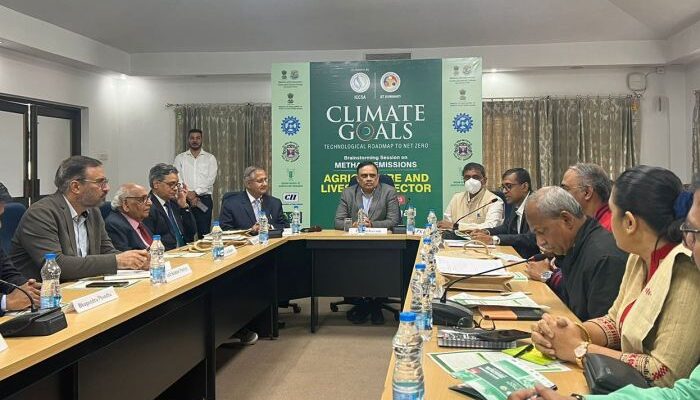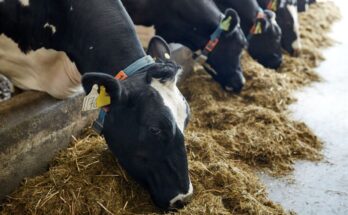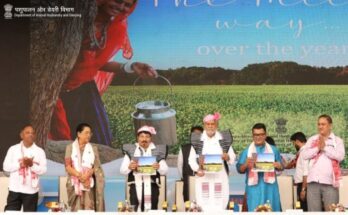Even as the nation is working towards reducing carbon footprints by investing heavily in clean energy generation sources, top scientists from leading institutions across India discussed low-cost workable solutions to control and reduce methane emission in the environment. The experts had gathered at a brainstorming session of Agriculture and Livestock of ‘Climate Goals- Technological Roadmap to Net Zero’ at IIT-Guwahati on Wednesday, organised by International Centre for Climate and Sustainability Action Foundation (ICCSA).
Speaking on the gravity of the issue, Dr JS Sharma, Head, International Centre for Climate and Sustainability Action Foundation said, “India is the third largest emitter of methane, behind China and the United States. According to the Global Methane Assessment report by the United Nations, our methane emissions in 2020 were approximately 36 million metric tonnes of CO2 equivalent. This means India’s contribution to global methane emissions is about 6 per cent. The emissions from the agriculture sector accounted for about 60 per cent.”
Dr Sharma said, while the country is investing in creating clean energy generation infrastructure, the country should deploy a regulatory framework to check methane emissions while exploring low-cost workable solutions to control methane emissions. There is a need to bring in mainstream mitigation policies to achieve the goal of Paris Agreement which is vital for a limit of 1.5 degree Celsius.
You may also like to read – Budget 2023-24: Accelerating agritech to create a robust ecosystem
Speaking on the issue, Dr TG Sitharam, Chairman, All India Council of Technical Education (AICTE) said that India has the highest livestock population in the world and most of the livestock is managed in and around villages, we must seriously consider village planning where village people can be educated on waste management, sustainable water development and livestock feed and upkeep. It will play a crucial role in the achievement of India’s Net Zero goals.
“Agricultural activities such as rice cultivation and livestock farming are major sources of methane emissions in India. Methane is a far more potent greenhouse gas than carbon dioxide. It has a pronounced effect within the first two decades of its presence in the atmosphere,” he added.
Dr Rakesh Kumar, Officer on Special Duty, at CSIR headquarters said, we believe local sources that are rich in minerals, and vitamins if mixed in cattle feed will not only control methane emission but also improve milk productivity and thereby increase the income of dairy farmers.
You may also like to read – How does the seed industry see the Union Budget 2023-24?
Ration balancing/ nutrient optimisation is one of the promising strategies for reducing enteric methane emissions and improving the sustainability of dairying in smallholder systems. The idea of organising workshops like this in sectors such as oil & gas, transportation, waste management, mining, and agriculture & livestock, to bring scientists, experts and researchers together to develop and adopt workable solutions with localised inputs, Dr Kumar further said.
With India’s Presidency of G20 where sustainability is one of the key subjects that is relevant to all the stakeholders across the world, this congregation of experts will bring the necessary expertise to address the climate goals.
Summit co-chair and Head CDMR, IIT Guwahati, Dr Sudip Mitra, said, “With India setting tight deadlines for climate change goals, methane reduction becomes crucial. Climate-smart and regenerative agriculture could be an efficient way to address the issue of methane emission from agriculture. Active research partnership with farmers to address the issue of methane emission management from the agriculture sector is the need of the hour.”
The event was attended by senior scientists from Council of Scientific and Industrial Research (CSIR), Indian Council of Agricultural Research (ICAR), IIT Guwahati, AICTE, Benaras Hindu University (BHU), Ashoka Trust for Research in Ecology and the Environment, National Dairy Development Board (NDDB), besides others. The experts also discussed ways and means to reduce methane emissions and also eliminate methane from the environment through collaboration.




